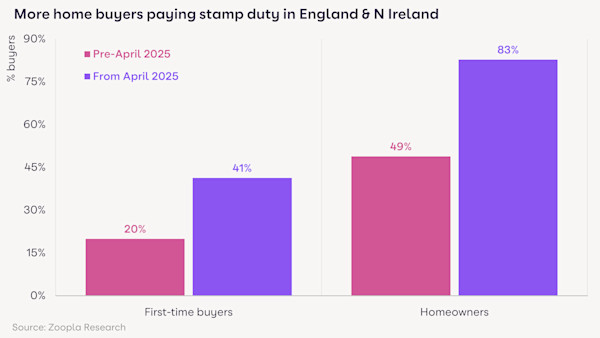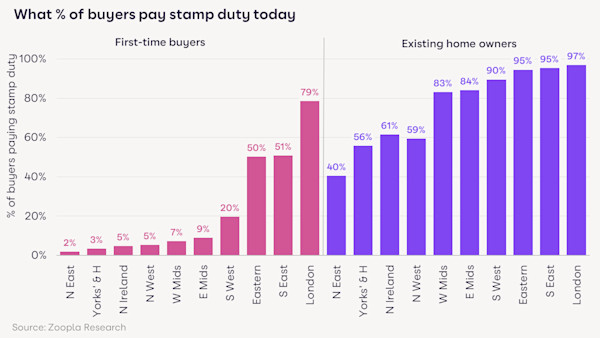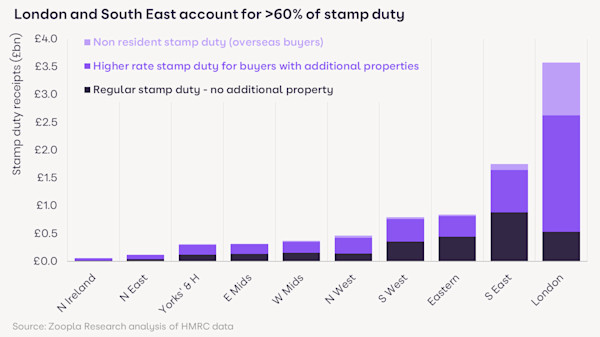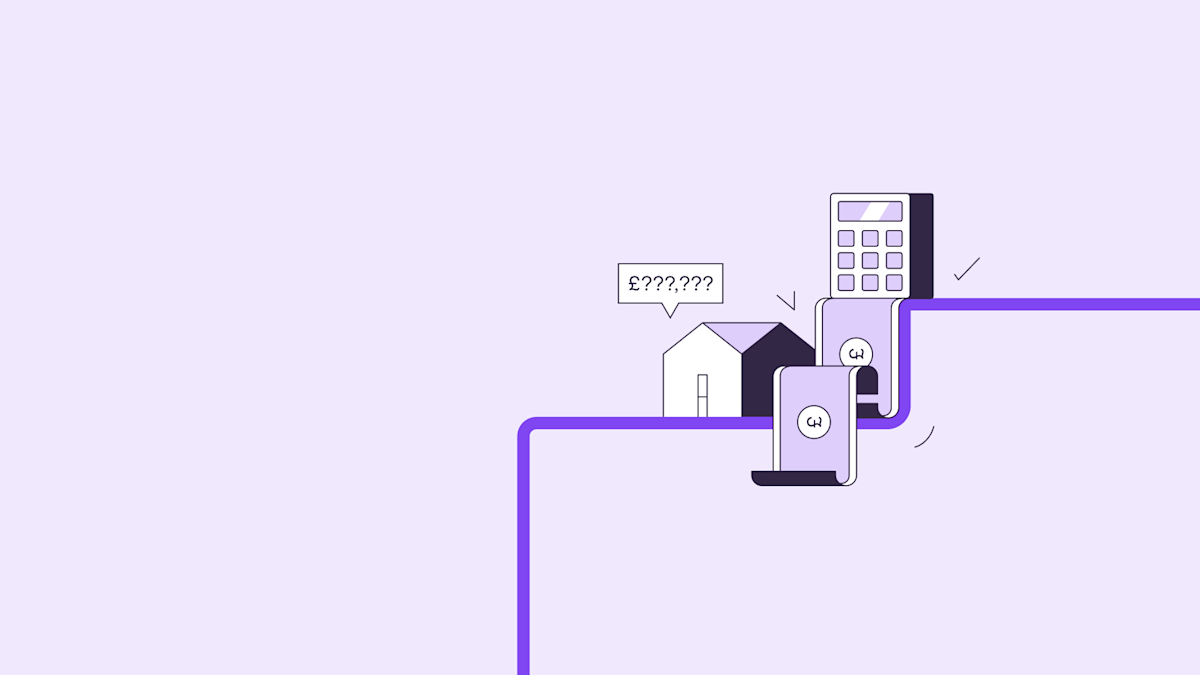What are the property tax changes people are talking about?
It’s all speculation at the moment, but in simple terms:
replacing Stamp Duty Land Tax with an annual property tax on homes sold for more than £500k
charging capital gains tax (CPT) on capital gains for homes sold for more than £1.5m
a possible revaluation of council tax bands
This is the usual speculation ahead of an Autumn Budget with extra focus on housing. Reform of property taxes to encourage moving and support economic growth have been long-promoted - and everyone would welcome the abolition of stamp duty - but it’s a tax that generates more than £10 billion a year.
How does property tax work today?
Stamp duty is a tax you pay on moving home, and it’s the main way the government gets money from the housing market.
Stamp duty has long been criticised as outdated and it’s often deemed the biggest barrier to moving house. For example, if you buy a house worth £295k, your stamp duty bill is £4,750 if you already own a home. A first-time buyer would pay nothing under £300k.
The tax acts as a drag on demand and transactions in the housing market due to its high cost for buyers - especially in southern England - which has a knock-on effect on economic growth and labour mobility.
Homeowners also pay council tax to their local authority, which was introduced in 1993 and is based on property values from that time. It pays for local services like education, street cleaning and policing.
At the moment, there is no tax on capital gains from your main home.
Who pays stamp duty right now?
In terms of who foots the UK’s current stamp duty bill, very few people pay it at all in lower value areas like the North of England. This is because the tax only kicks in on properties worth more than £125k (or £300k for first-time buyers).
The tax hits the hardest in London and Southern England where house prices are higher, and, especially those with more than one home and overseas buyers who pay higher rates.
83% of homeowners pay stamp duty when they move
We’ve analysed who currently pays stamp duty before and after the tax relief ended in April 2025, based on buyer enquiries to estate agents.
83% of homeowners pay stamp duty when they move house compared to 49% before April when the reliefs were in place. 41% of first-time buyers now pay stamp duty, compared to 20% before April.
This has reduced demand and slowed house price growth since April, showing the impact of higher tax on the wider market.

Most stamp duty payments are in the south of England
The vast majority of those stamp duty payments come from the southern regions of England.
In London, 97% of homeowners and 79% of first-time buyers pay stamp duty - both the old and proposed versions of property tax have the greatest impact where the highest house prices are.

London and the South East pay 60% of stamp duty
This chart shows the proportion of stamp duty payments between English regions and types of buyers within those regions.
London’s home movers pay more than £3.5 million in stamp duty each year - more than a quarter of the total UK amount - with most of these payments coming from the higher rate stamp duty for buyers with additional properties.

Our view on the idea of scrapping of stamp duty
A new annual property tax on the 33% of homes that sell for more than £500k would be like stamp duty on a payment plan. The impact on you would vary depending on the value of your home and how long you stay in it.
The pros of ending stamp duty
Removing barriers to homeownership is good news
Reforms to encourage housing market activity and remove barriers to homeownership are welcome. It supports economic growth and homebuilding, which are currently limited by the high cost of stamp duty.
Boost to housing activity in mid-market
Ending stamp duty could come with a boost to housing market activity - particularly in the mid-market price range up to £500k, which covers 2 in 3 sales in the UK. With lower moving costs for certain price brackets, more people could move house or buy their first home, in turn supporting the economy.
Supports homebuilding targets
Higher demand levels would support the ambition to accelerate homebuilding and reach the government’s target of 1.5 million new homes by 2029.
First-time buyers could get affordability boost in London and the South East
If a new £500k+ tax is introduced instead, first-time buyers in London and the South East could get an affordability boost. It’s likely to limit house price growth - which can be seen as a positive or negative for different people - but would allow buyer affordability to catch up in expensive areas.
The cons of ending stamp duty
The key challenge is how the government replaces the £10+ billion lost from stamp duty each year, and we question whether the proposals would do so as they’re likely to reduce sales volumes.
Disproportionate impact on homeowners in London and South East
1 in 3 UK homeowners would be subject to an annual property tax on homes worth more than £500k, with the main impact in London and the South East. This would limit demand for homes in these regions where house prices have already been static for a decade, which is likely to lead to house prices falling.
Reduced sale numbers due to sellers factoring in cost
The proposed tax could also lead to sellers factoring in the ongoing tax cost to their selling price, which then removes the affordability benefit for buyers and reduces demand and sale numbers.
Market distortions around the ‘cliff edge’
There would be market distortions around any ‘cliff edge’ point for tax. For example, if the tax applies above £500k, you would be likely to see much greater demand just below this pricepoint and much less demand above it. This artificially influences house prices and makes things trickier for anyone selling or buying a home in this price region.
Risk of market disruption
As with any change to policy, there is risk of short- to medium-term disruption of the housing market as people adjust.
It would take years to replace the lost revenue
Changing property taxes at a time when government finances are tight seems a strange move when the alternative would take years to replace the lost revenue.
Capital gains tax on higher-value properties
The addition of capital gains tax on properties worth more than £1.5m could be a quicker revenue win for the government, but it opens a Pandora’s Box.
Tax-free gains on the sale of a main residence is a core part of home ownership in the UK. It’s a large tax relief for all homeowners and is worth £36bn a year based on HM Treasury estimates. Many homeowners are sitting on sizable capital gains at all price levels, especially those who have owned their home for longer.
Just 4% of homes for sale are worth more than £1.5 million and this is skewed towards homeowners in London where property prices are much higher.
Although only a small proportion of buyers would be hit, many others would be concerned that the threshold would be lowered to raise more tax in future.
Any capital gains tax on property would be a huge change and it would send a strong signal about the direction of property tax. This could have much bigger political implications and risks.
Another option for the government is allowing a lifetime capital gain on a home and taking this, but this would further reduce the tax take.
Changes to council tax
Another option being suggested is a change to the way council tax works.
While the underlying valuations for council tax are out of date, most properties in an area increase in value by the same proportion in the long run.
A revaluation would tidy up the system but, again, we question how effective it would be in raising enough tax - unless the government took the opportunity to add new bands to unlock more revenues for local government. This would again impact those with expensive properties or in higher-value areas the most.




